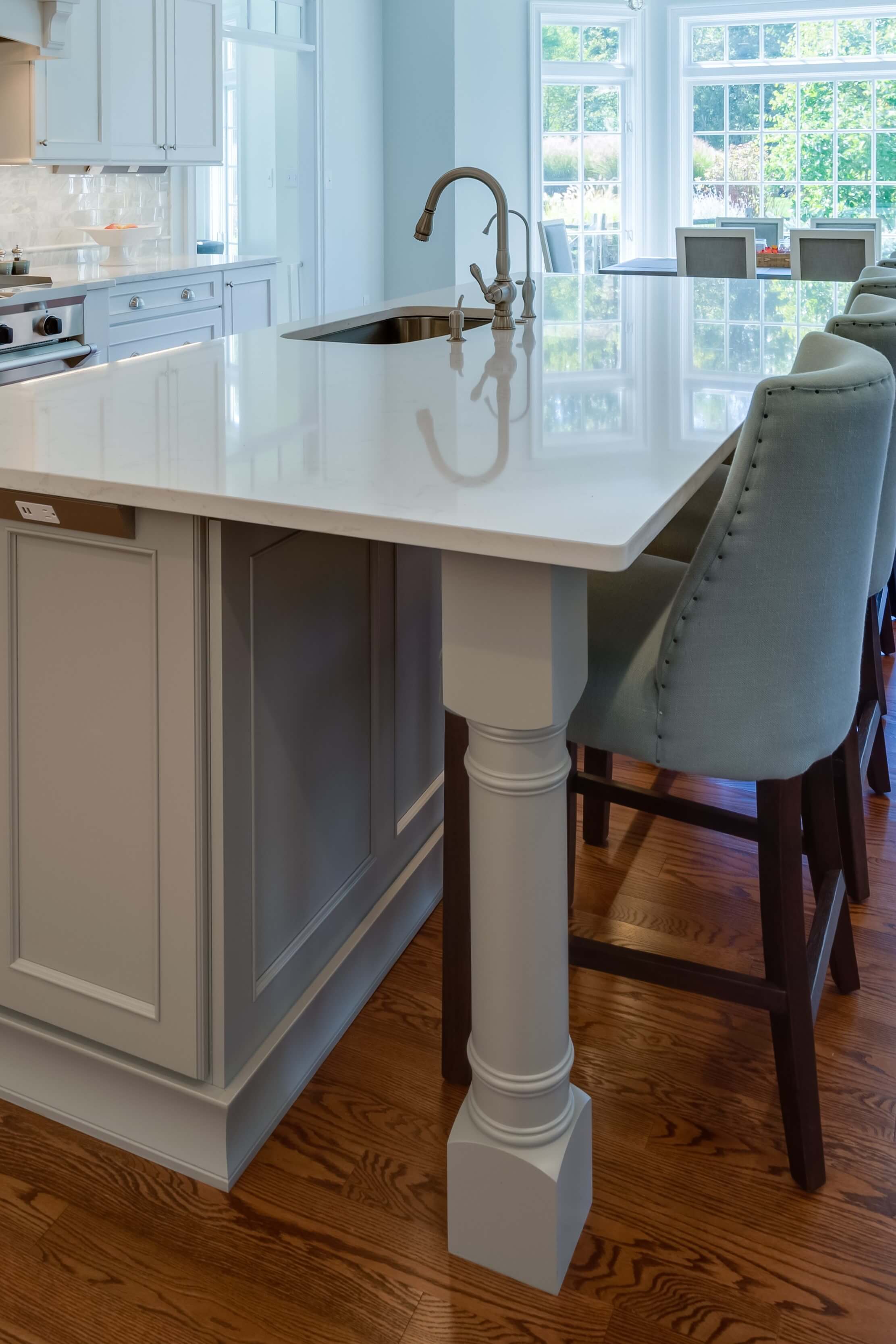Transform Any Type Of Kitchen Room with Lovely Legs For Kitchen Island Selections
Transform Any Type Of Kitchen Room with Lovely Legs For Kitchen Island Selections
Blog Article
Crucial Factors to Think About When Picking Legs For Kitchen Area Island
Picking the suitable legs for a kitchen area island involves a careful assessment of multiple elements that can dramatically affect both performance and aesthetic allure. Amongst these, the selection of material plays an essential function in guaranteeing longevity, while the design must complement the existing decor. Furthermore, considerations such as elevation and weight assistance are necessary for stability and convenience. As we explore these components, it comes to be clear that each decision can have significant implications for the general kitchen experience. What subtleties should be thought about in each of these groups to accomplish the optimal balance?
Material Options
When picking legs for a kitchen island, understanding the numerous product alternatives is crucial for attaining both aesthetic charm and architectural honesty (Legs For Kitchen Island). The choice of material substantially influences not only the toughness of the island yet also its total design and performance
Steel legs, commonly made from stainless steel or wrought iron, contribute a commercial and modern-day feeling while ensuring sturdiness and stability. These products are resistant to use and can support significant weight, making them excellent for larger islands.
One more alternative is crafted products, like MDF or plywood, which can be extra economical while still providing a series of surfaces. They may not supply the very same level of stability as solid timber or steel. Legs For Kitchen Island. Products such as acrylic or glass can develop a modern appearance, though they might require added assistance to ensure security.
Inevitably, the choice of product for cooking area island legs should straighten with the wanted capability and the overall theme of the cooking area.
Design and Layout

When considering style, the shape and finish of the legs are critical. Tapered legs can provide a sense of agility and sophistication, while thicker, much more robust legs can convey toughness and security. Furthermore, the surface-- be it painted, stained, or all-natural-- ought to enhance the kitchen cabinetry and counter top materials to create a unified appearance.
Additionally, the design of the legs can also mirror personal preference. Custom-made or decorative legs, such as those including complex carvings or one-of-a-kind geometric shapes, can work as focal points, including character and individuality to the kitchen area. Ultimately, the appropriate selection will certainly not just improve capability but likewise boost the visual appeal, making try this out the cooking area island a standout attribute of the home.
Height Factors To Consider
Choosing the proper height for kitchen island legs is essential, as it straight affects both performance and convenience. The common elevation for a cooking area island normally ranges from 36 to 42 inches, straightening with typical kitchen counter elevations.

It is also important to account for customers' preferences and heights. Tailoring the elevation can ensure a comfortable experience for all member of the family, making the cooking area island a more useful and pleasurable space.
Weight Assistance
Guaranteeing appropriate weight assistance for cooking area island legs is essential for both safety and security and functionality. The kitchen island typically offers multiple functions, consisting of cooking, eating, and added storage space, necessitating a robust support framework. When picking legs, it is critical to consider the total weight capacity required based on the island's intended usage and the products that will certainly be positioned on find more information it.
The selection of material for the legs plays a considerable duty in their weight-bearing abilities. Strong timber, steel, and heavy-duty compounds typically provide superior strength compared to lighter materials. Furthermore, the layout of the legs-- whether they are straight, tapered, or have a pedestal type-- can affect their capability to distribute weight successfully across the structure.
Always seek advice from the supplier's specifications concerning tons limitations to make certain that the legs can sustain the designated weight without jeopardizing safety and security. In recap, selecting cooking area island legs with adequate weight support is essential for creating a safe and functional cooking area.
Installment and Maintenance
Appropriate installation and maintenance of kitchen area island legs are important for guaranteeing long life and security. This commonly entails protecting the legs to the island base utilizing ideal fasteners, guaranteeing that the legs are level and straightened.
Once installed, regular maintenance is required to protect the stability and look of the legs - Legs For Kitchen Island. For wood legs, regular cleaning with a damp cloth and application of suitable wood polish can avoid wetness damage and maintain their finish. Steel legs might need a gentle cleaning remedy to get rid of oil and gunk, adhered to by a completely dry towel to avoid corrosion development
Furthermore, inspect the legs regularly for indicators of wear or damage, such as splits or loose joints. Tightening up screws or bolts as required can also extend the life-span of the legs. By adhering to these setup and maintenance methods, property owners can make sure that their cooking area island continues to be sturdy and aesthetically appealing for many years ahead.
Conclusion

Visual coherence is vital in choosing the style and design of legs for a kitchen island, as these elements significantly influence the general atmosphere of the area. Tapered legs can offer a sense of agility and style, while thicker, Read Full Report extra durable legs can convey strength and security.Choosing the appropriate elevation for kitchen area island legs is important, as it directly affects both performance and convenience. In recap, picking kitchen area island legs with sufficient weight assistance is vital for creating a functional and secure cooking space.
In final thought, picking legs for a kitchen area island requires careful consideration of different elements, including product choices, style, height, weight assistance, and setup.
Report this page